A webinar titled “#IWD2021: Ensuring Women’s Right to Peaceful Assembly” and organized by the International Center for Not-for-Profit Law, the Mesoamerican Initiative of women human rights defenders, and the Special Rapporteur on the Rights to Freedom of Peaceful Assembly and of Association, Clément N. Voule, where Hayat Mirshad shared as a speaker her experience and views on the topic. (Check details below)
International Women’s Day (IWD) is celebrated annually on 8 March in countries around the world. It is a day to celebrate women’s contributions to the betterment of society and to mobilize offline and online for women’s rights. In 2020, the world witnessed some of the biggest IWD marches in history, including large demonstrations in Mexico, the Philippines and Chile, as women took to the streets to protest persistent gender-based violence and inequality.
Many women joined demonstrations in spite of attacks that aimed to prevent them from participating. “In the context of rising fundamentalisms and backlashes against gender equality, peaceful demonstrations relating to women’s rights have become a frequent target of attacks by State and non-State actors, especially when such demonstrations are perceived to challenge gender stereotypes or religious norms,” concluded the Special Rapporteur Clément N. Voule in his latest thematic report to the General Assembly.
The report, which addresses the rights of women and girls to peaceful assembly and of association, indicates that demonstrations celebrating IWD continue to be violently attacked in many countries around the world. Attacks also spread online, with reports of an increase of online harassment and social media attacks against women’s rights activists and movement leaders during last year’s IWD.
The COVID19 pandemic magnified and added new risks to women’s rights mobilization during 2020. With much of the activism moving to the digital space, online gender-based violence and digital threats against women’s rights defenders increased. Physical demonstrations for women’s rights were also met with excessive or unlawful use of force by police, as some States enforced emergency measures related to
COVID-19 with violence.
As women around the world prepare to celebrate #IWD2021, concerns have been raised about the risks of new digital attacks and arbitrary enforcement of COVID-19 measures. The webinar will bring experts to reflect on these challenges and their impact on women’s ability to fully enjoy their right to peaceful assembly to advance gender equality. Speakers will consider the importance of the right of assembly to achieve gender equality and explore: i) trends in restrictions of women’s rights mobilization online and offline and ii) strategies and promising practices being adopted to end these repressive trends and protect women’s right to peaceful assembly as the world continues to face COVID-19.
Objectives:
Promote findings and recommendations of UNSR Voule’s thematic report on Women and FoAA;
Raise awareness of the trends in restrictions and risks facing women’s right to peaceful assembly,
particularly on International Women’s Day and during assemblies to advance gender equality;
Reflect on strategies and promising practices to counter those risks and trends.
Informe discussions in multilateral organizations, including the Human Rights Council and CSW.
Panelists:
Clément N. Voule, UN Special Rapporteur on the rights to freedom of peaceful assembly and of
association
Dorothy Estrada Tank, Member of the UN Working Group on Discrimination Against Women
Hayat Mirshad, Co-director of Fe-Male (Lebanon)
Osang Langara, Regional Communications & Knowledge Associate Just Associates (Philippines)
Alejandra Burgos, Salvadoran Network of Women Human Rights Defenders (El Salvador)
Jan Moolman, Co-Manager of the Women’s Rights Program APC (South Africa)
Ona Flores, ICNL (Moderator)

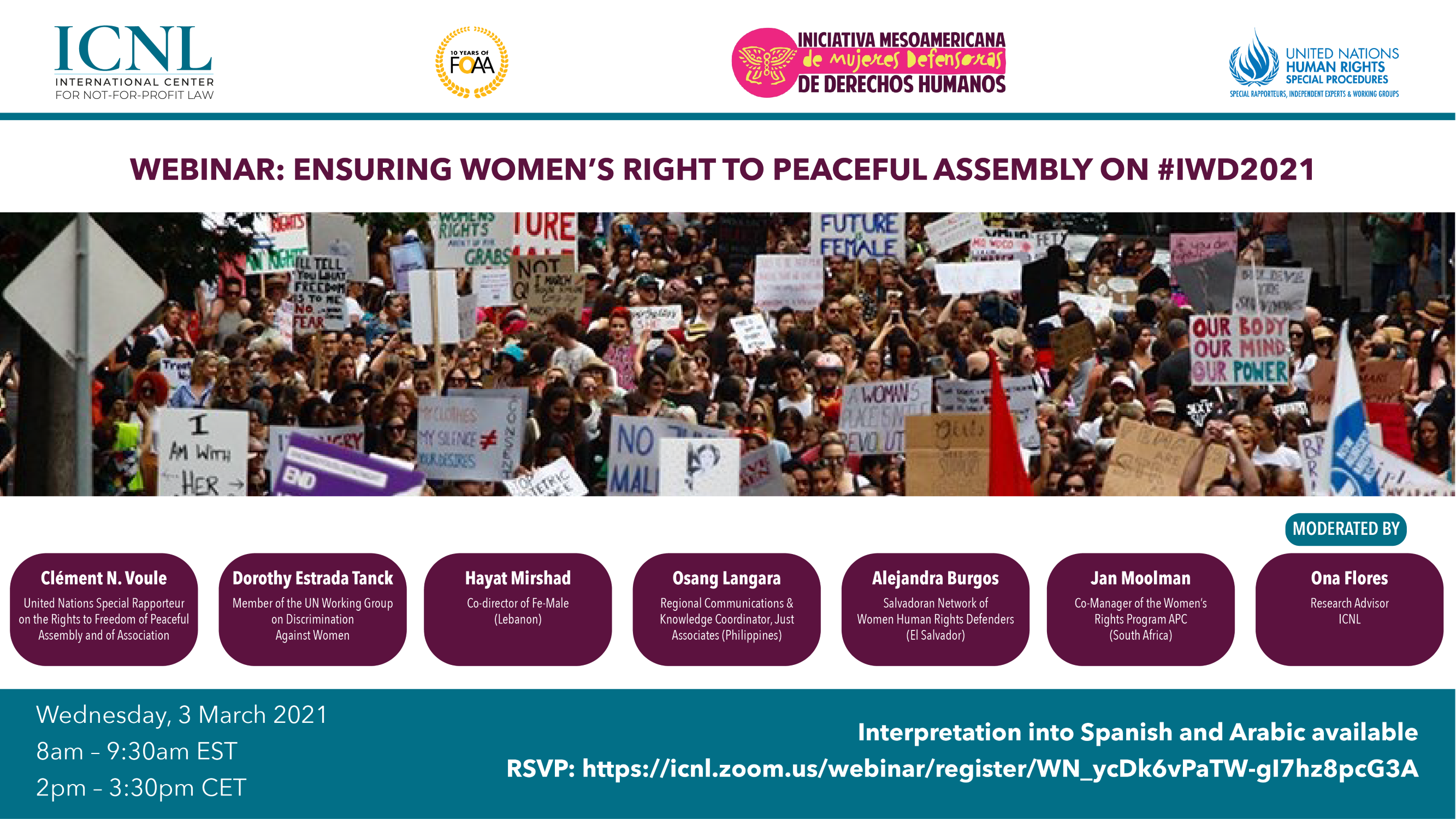
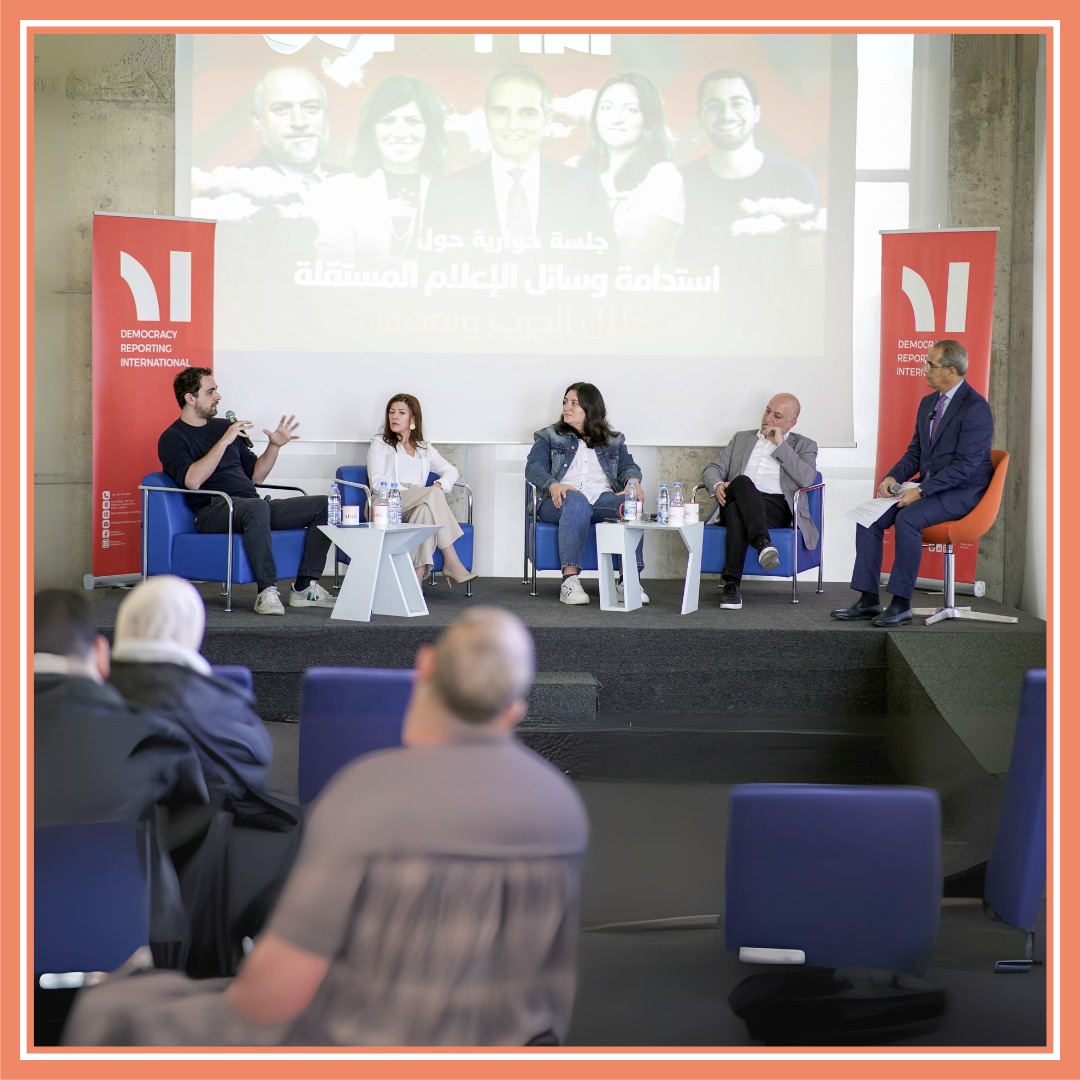
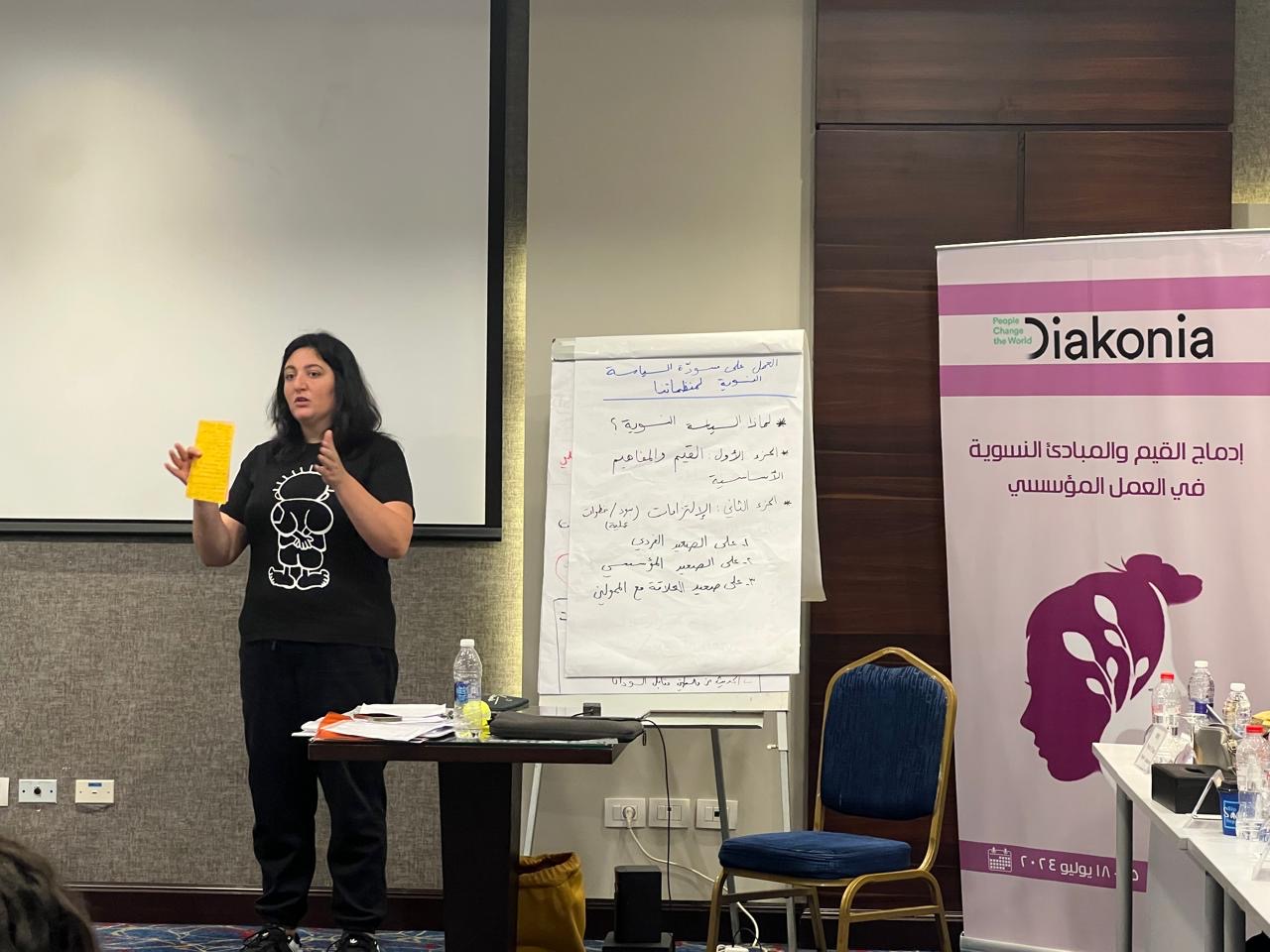


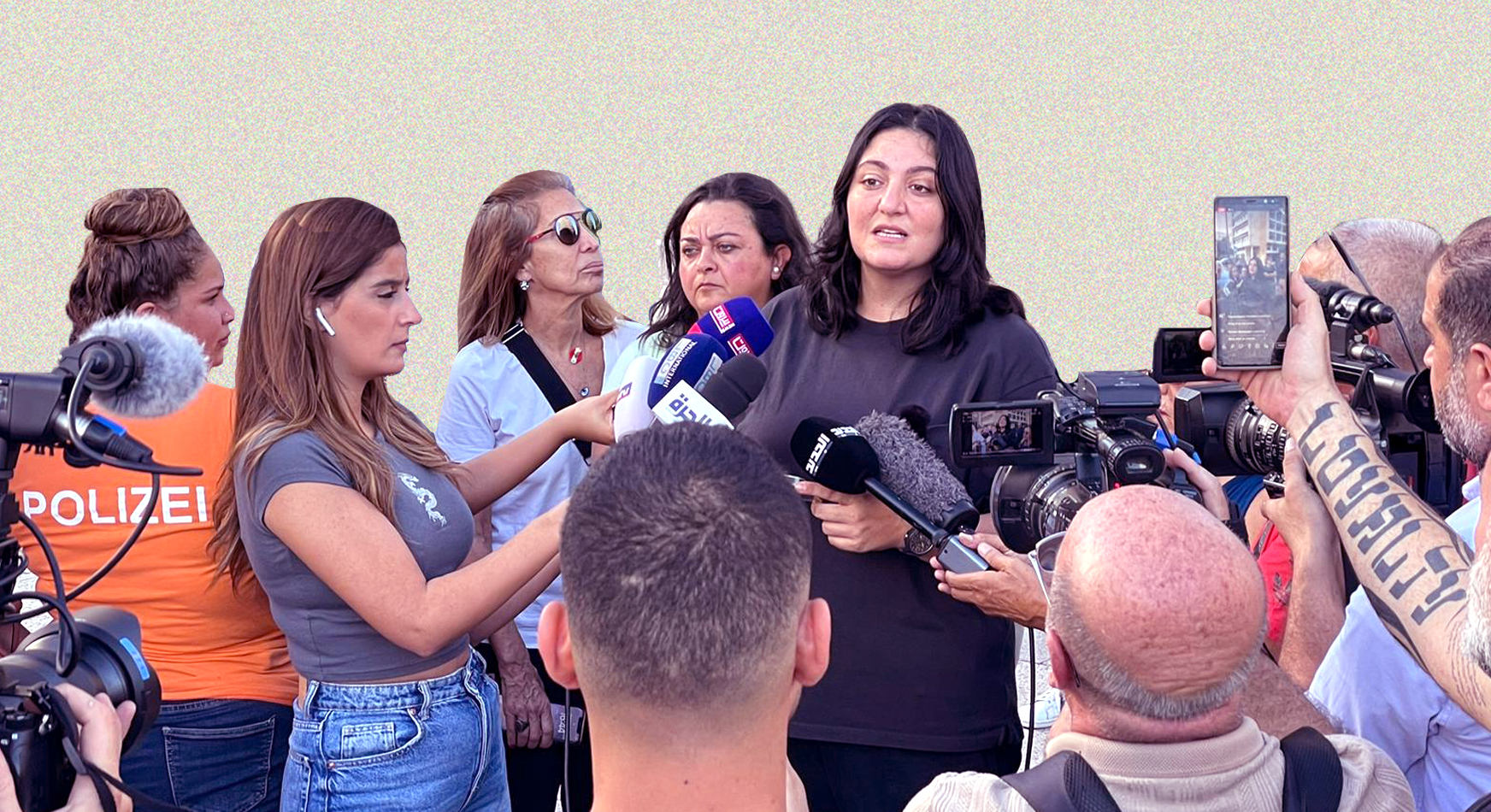
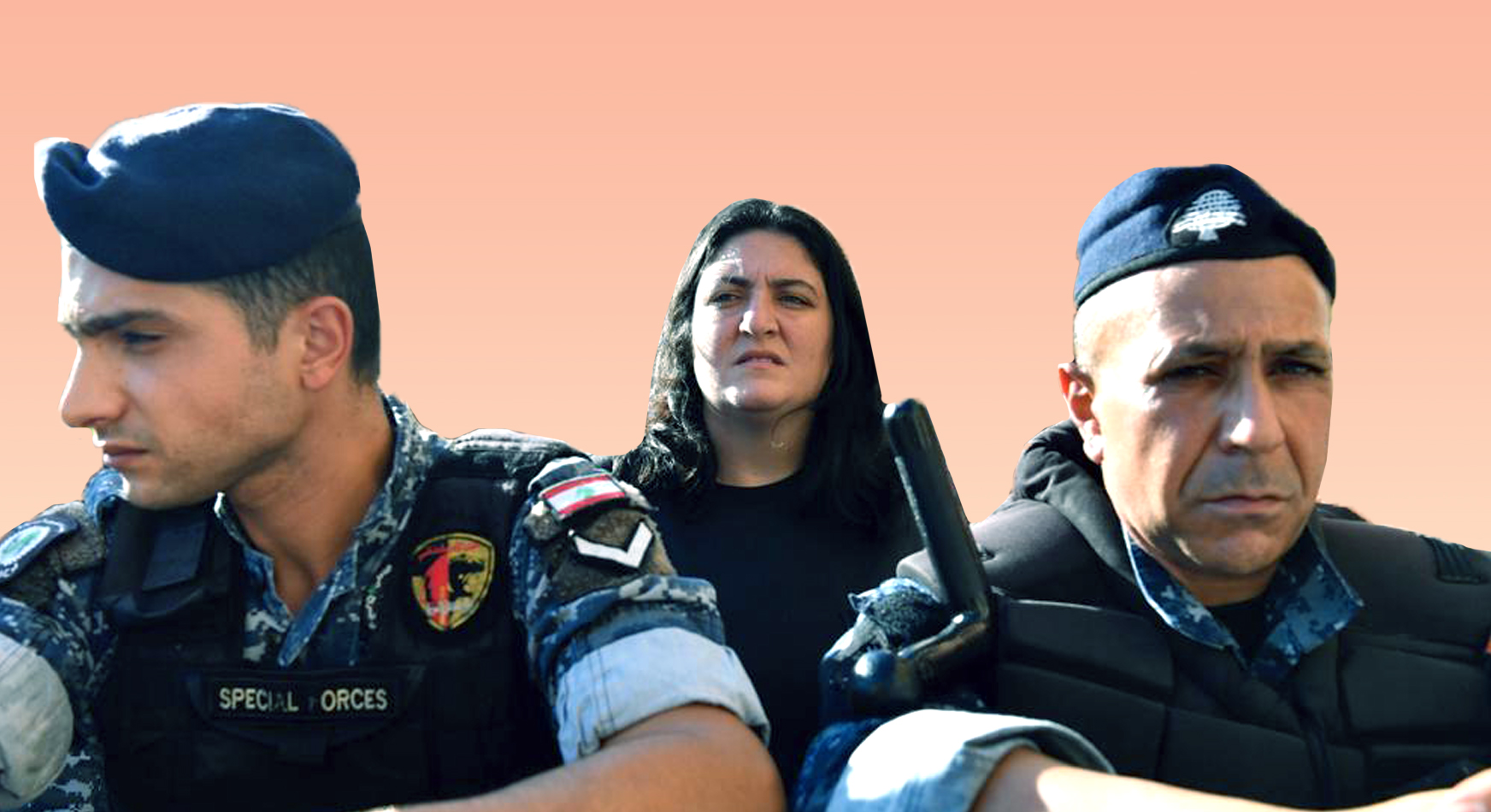
Leave A Comment